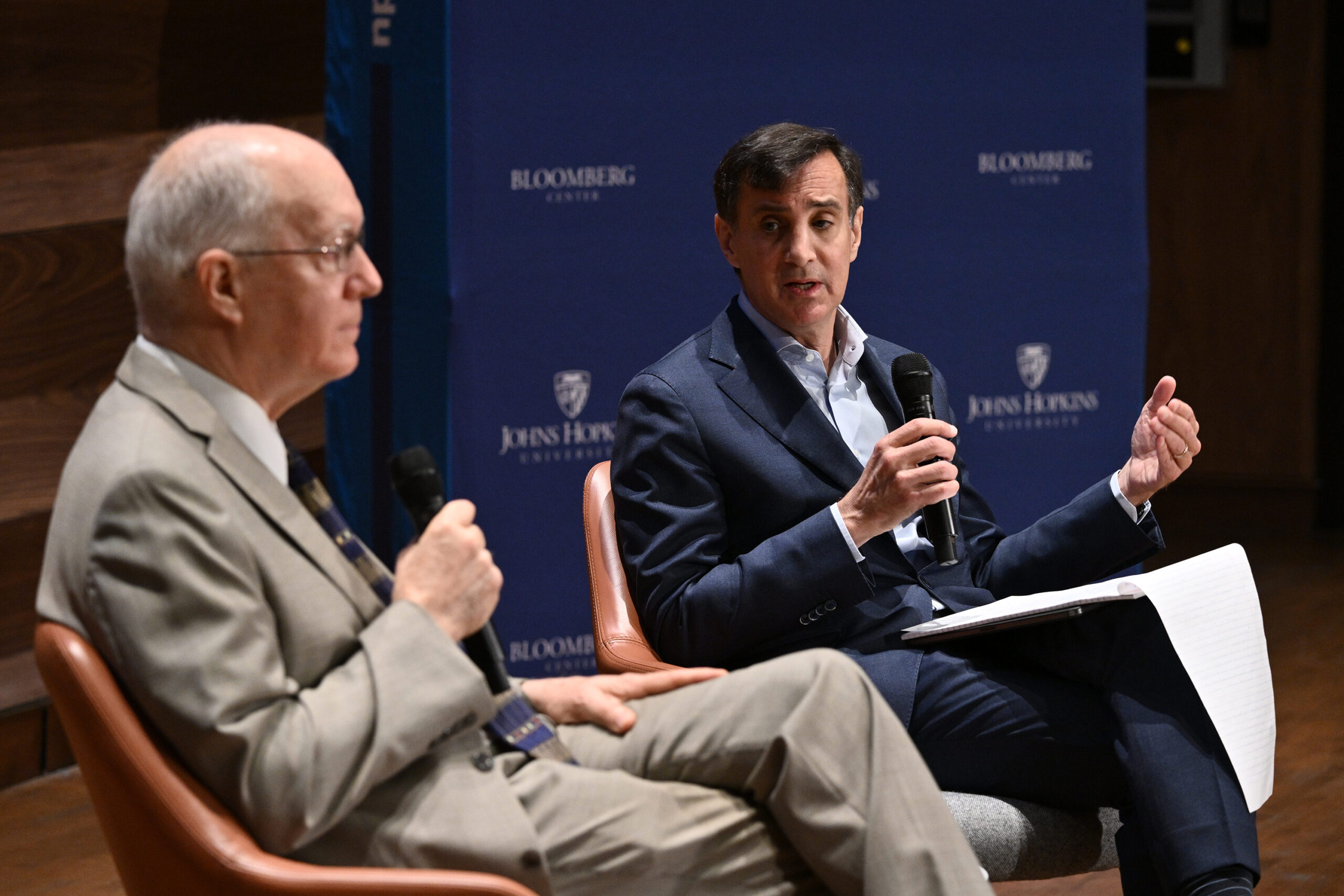Three things to know about science diplomacy
Johns Hopkins hosts its inaugural Science Diplomacy Summit to highlight the important work of those who build transnational ties around issues in science

- Image Javad Nikpour
When Johns Hopkins professor and Nobel laureate Peter Agre led a delegation of scientists to North Korea, he left behind the tie he wore when delivering his Nobel lecture, so it could someday be given to the first North Korean to win the prestigious award.
It’s a fitting gift for someone who has spent years working to build connections and ties with scientists in other countries, especially those in places that don’t have diplomatic relationships with the United States.
Agre is now working to train the next generation of science diplomats, individuals who will develop transnational relationships around issues of science. Agre and Ona Ambrozaite, PhD candidate in JHU’s Department of Chemistry, launched the Johns Hopkins Science Diplomacy Hub at the Hopkins Bloomberg Center last September and helped organize the inaugural Science Diplomacy Summit, held in April. The two-day event, which featured keynote remarks by U.S. Rep. Bill Foster, attracted more than 700 attendees from 25 different countries for its more than 40 thematic science diplomacy sessions.
Here are three things to know about science diplomacy:
- Nations are embedding scientists with their diplomats.
The United Kingdom has a network of more than 100 scientists stationed in countries around the world that advise on science and technology policy issues.
“In the past, generalists like me had an English major with no particularly useful skills in science. We’d have struggled our way through a brief and that would have been just fine,” Dame Karen Pierce, the British ambassador to the United States, said during one of the event’s panel discussions. “But the world is now so specialized that we need proper scientists to come and arrange these contacts.”
- Partnerships are vital for tackling big issues.
The Arctic Council, an intergovernmental forum that includes Arctic countries and Arctic Indigenous peoples, has brought together diverse institutions with an eye toward combatting climate change.
“There’s a very strong science component because climate change, in Arctic areas, has moved four times faster than elsewhere,” said Mikko Hautala, the ambassador of Finland to the United States. “We invite a lot of different ways to tackle that problem, especially in the north because it is really felt.”
Similarly, Belgium has an astronaut training for a European Space Agency mission in Houston, Texas, an effort that brings together multiple countries for travel to the International Space Station.
- Universities play a key role.
Portugal has partnered with a number of leading American universities to give students access to resources they don’t readily have at home. The program also supports faculty exchanges and funding for science-based startups. Two of the startups have received the “unicorn” $1 billion valuation.
“Becoming a unicorn is nearly impossible and these startups were the result of these partnerships,” said Francisco Duarte Lopes, ambassador of Portugal to the U.S.